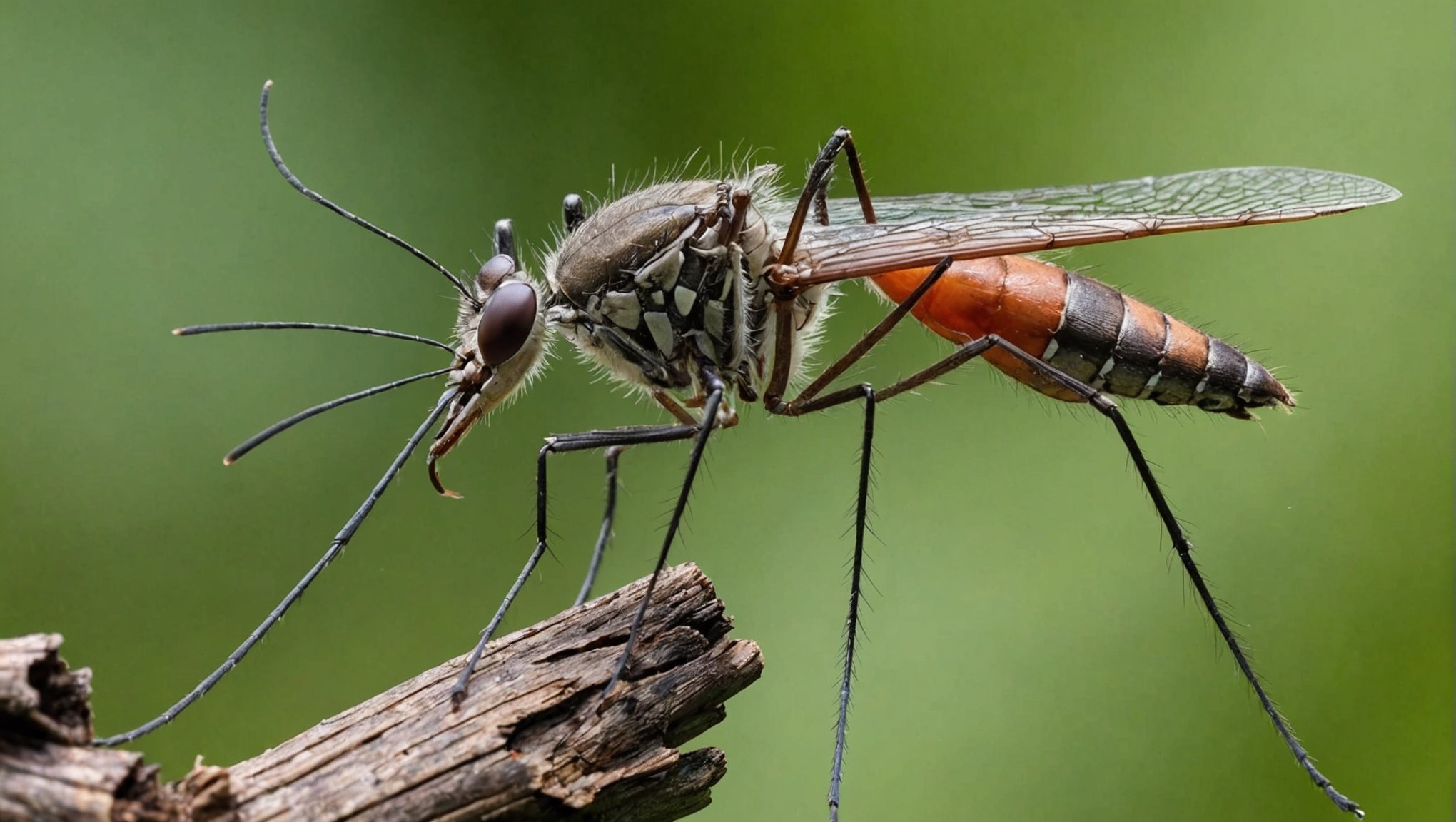Understanding Eco-Friendly Mosquito Management
Mosquitoes are not only a nuisance but also a potential health threat, making effective management crucial. The breeding habits of mosquitoes occur primarily in stagnant water. Common habitats include ponds, puddles, and even the smallest water collections like those in garden pots or clogged gutters. Addressing these breeding areas through sustainable mosquito control is an essential first step.
Embracing sustainable mosquito control methods involves managing mosquito populations without harming the environment. One effective strategy is introducing natural predators, such as dragonflies or certain fish species, which consume mosquito larvae. These eco-friendly solutions minimize chemical usage, reducing negative impacts on surrounding wildlife and plant life.
In parallel : Crafting the Perfect Outdoor Yoga Retreat: Harmonizing Your Space with Nature”s Beauty
Eco-friendly gardening plays a vital role in sustainable pest management. By planting natural repellents like citronella, lavender, or marigolds in your garden, you can deter mosquitoes naturally. These plants thrive in various environments, offering dual benefits—enhancing garden aesthetics while keeping mosquitoes at bay.
The benefits of these eco-friendly strategies extend beyond immediate mosquito control. They support biodiversity, improve soil health, and create a harmonious garden ecosystem. By understanding and implementing sustainable mosquito control, you not only protect yourself and your garden but also contribute positively to the broader environment.
Also read : Creating an Intuitive Smart Home System for Seniors: A Guide to Seamless Integration
Natural Repellents for Mosquito Control
Traditional chemical repellents can be harsh, but natural mosquito repellents offer a refreshing alternative. Essential oils are at the forefront of this movement, providing effective yet gentle solutions.
Clove Oil
Clove oil is a powerful natural mosquito repellent due to its active compound eugenol. It’s known for its strong aroma which mosquitoes find repulsive. To use it effectively, dilute clove oil with a carrier oil like coconut and apply on exposed skin or surfaces in your garden. However, it’s crucial to test a small skin area first to prevent irritation.
Citronella
Citronella is synonymous with mosquito repellent, celebrated for its efficacy and pleasant scent. Its essential oil can be used in candles or diluted in sprays for garden application. Citronella forms a protective barrier, deterring mosquitoes naturally. Remember to reapply frequently and avoid skin contact in its undiluted form to minimize skin sensitivity.
Lavender
With its soothing fragrance, lavender oil is both a mosquito deterrent and a calming agent. It contains compounds like linalool, which mosquitoes dislike. Applying lavender oil mixed with a carrier oil to the skin or spraying around the garden can keep these pests at bay, while offering aromatherapeutic benefits. Always ensure proper dilution to prevent potential allergic reactions.
Plants that Naturally Repel Mosquitoes
Incorporating mosquito-repelling plants into your garden not only enhances its beauty but also helps keep those pesky insects away. Below is a list of plants known for their mosquito-deterring properties:
- Lemon Balm: Its citrus scent is pleasant to humans but repels mosquitoes.
- Lavender: This plant emits an aroma that mosquitoes dislike. It’s also a beneficial garden flora since it attracts pollinators.
- Marigold: Its distinctive smell acts as a natural bug deterrent.
- Basil: Not just for cooking, its strong scent helps ward off mosquitoes.
These beneficial garden flora not only repel mosquitoes but also bring a host of advantages to your green space.
Incorporating Mosquito-Repelling Plants
To maximize the effectiveness of these plants, consider placing them around seating areas or entry points. Container gardening can be an effective way to easily move mosquito-repelling plants to different locations as needed.
Companion Planting
Companion planting involves growing mosquito-repelling flora near other plants, providing mutual benefits. They can enhance growth, reduce pests, and aid in pollination. For instance, planting basil alongside tomatoes not only helps in repelling mosquitoes but also improves the flavour of the tomatoes.
Habitat Modification Techniques
In the quest for mosquito breeding prevention, managing the garden habitat is essential. This begins with identifying and eliminating sources of standing water. Mosquitoes thrive in stagnant water, so it’s imperative to regularly survey your garden for such areas. Plant saucers, open cans, and even clogged gutters can become breeding grounds. Removing or regularly emptying these can significantly reduce mosquito populations.
Proper drainage solutions play a pivotal role. For areas prone to water accumulation, consider installing French drains or improving existing drainage systems to expedite the removal of excess water. These solutions ensure that water doesn’t stagnate, providing fewer opportunities for mosquitoes to lay eggs.
Furthermore, specific landscaping techniques can be adopted to minimize mosquito habitats. Incorporating plant species such as lavender or citronella can act as natural repellents, offering both aesthetic and practical benefits. Additionally, trimming dense vegetation and ensuring proper spacing between plants not only improves airflow but also deprives mosquitoes of shady resting areas.
Embracing these garden habitat management strategies not only helps in maintaining a mosquito-free environment but also contributes to a healthier and more enjoyable outdoor space. Regular inspections and modifications are essential for sustained results.
Implementing Biological Control Methods
Implementing biological pest control involves leveraging natural predators to maintain the ecosystem by keeping pest populations in check. This approach offers an eco-friendly alternative to chemical pest management strategies.
Attracting Beneficial Insects
Creating a thriving habitat for beneficial insects is key to sustainable pest control. Certain plants attract these eco-friendly predators, creating a natural line of defence against pests. For example, flowering plants such as daisies and marigolds can attract ladybirds and lacewings, both of which feast on aphids and other agricultural nuisances. Gardens and farms can benefit greatly from fostering a biodiverse environment that attracts such biological pest control agents.
Introducing Mosquito Predators
Mosquitoes are a notorious nuisance; however, introducing natural predators like bats and dragonflies can effectively reduce their numbers. Bats, for instance, consume thousands of mosquitoes each night. Similarly, dragonflies and their larvae are voracious mosquito hunters. Encouraging these predators involves creating a suitable environment, such as ponds for dragonflies and roosting spaces for bats.
While introducing these predators, it is important to consider ethical implications and balance the ecosystem. Introducing a predator must not disrupt native species or lead to unintended consequences. Striking this balance is crucial for achieving long-term pest control. Therefore, adopting these eco-friendly methods stimulates not just pest control, but the overall health of the ecosystem.
Tools and Resources for Sustainable Practices
Adopting eco-friendly gardening tools and sustainable pest management methods can significantly reduce your environmental impact. Here are some tools and resources to consider:
Recommended Products for Eco-Friendly Mosquito Control
Controlling mosquitoes without harming the environment is easier with products like neem oil and citronella candles. These natural solutions are effective and avoid the adverse effects of chemical insecticides. Neem oil not only repels mosquitoes but also nurtures plants, doubling as an insecticide and fertilizer. Meanwhile, citronella candles provide a pleasant aroma while keeping pests at bay, making your garden more welcoming.
Online Resources and Communities
The internet offers an abundance of resources for those invested in sustainable gardening. Platforms like Garden.org host forums where you can discuss eco-friendly gardening tools and share advice. Communities on Reddit, under topics like r/gardening, offer real-world experiences and innovative strategies for integrating sustainability into your garden.
Local Programs and Workshops
Local workshops provide hands-on learning opportunities for eco-friendly pest management education. Institutions such as local botanical gardens often hold workshops focusing on sustainable practices, introducing participants to both theoretical knowledge and practical applications. Engaging in these workshops allows you to connect with like-minded individuals and gain insights from experts in sustainable gardening.
These tools and resources, both online and local, are vital in empowering individuals to practice sustainable gardening effectively.
















